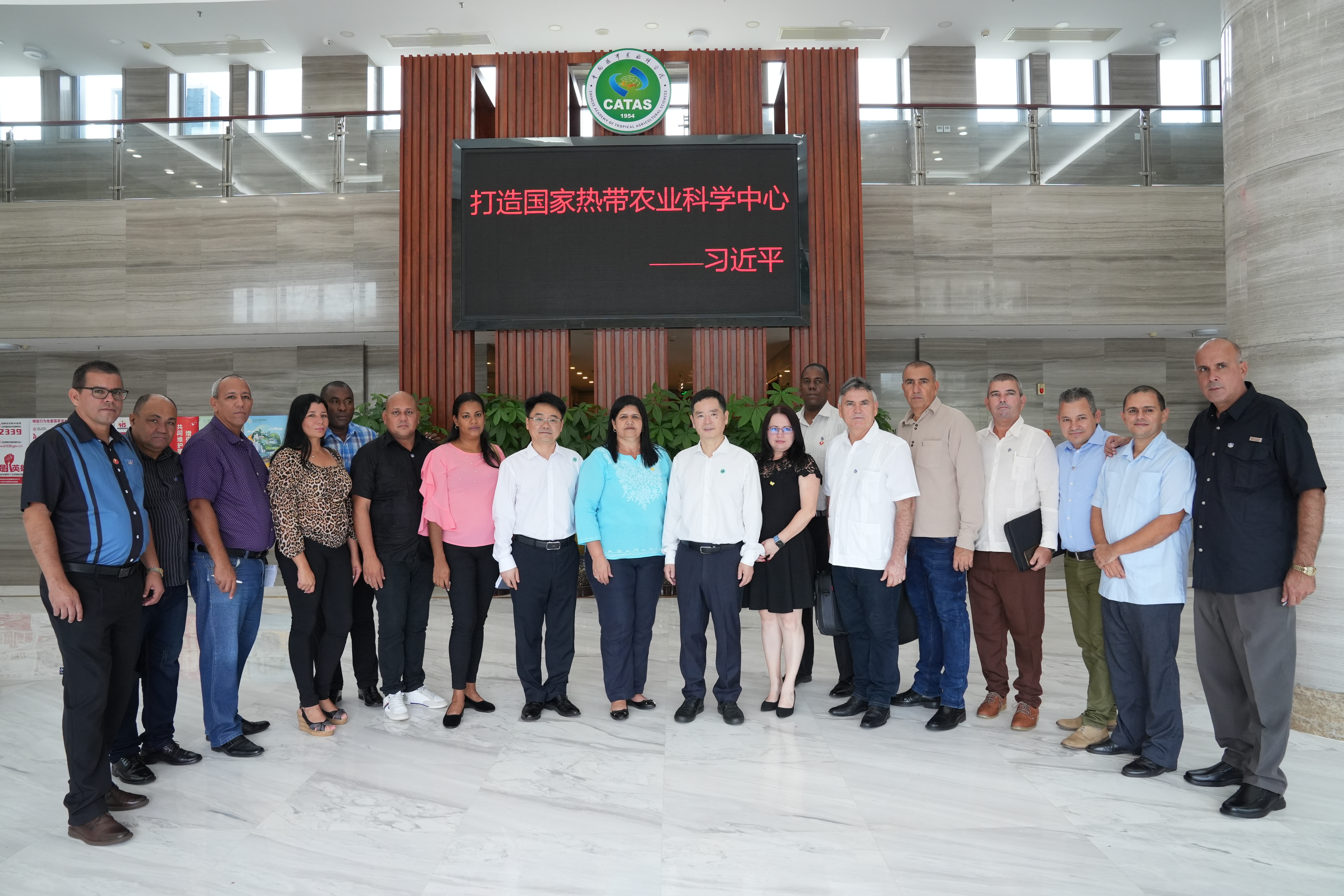On June 5th, Ms.Gladys Martínez Verdecia, a member of the Central Political Bureau of the Cuban Communist Party and the First Secretary of the Provincial Committee of Artemisa, a province in Cuba, led a delegation of 16 people to visit the Chinese Academy of Tropical Agricultural Sciences, or CATAS. Mr. Huang Sanwen, the President of CATAS, and Mr. Li Jihua, the Vice President, guided them in visiting the Exhibition Hall, Tropical Plant Germplasm Resources Display Nursery, and Tropical Rare Plant Garden of the Academy, as well as engaging in a discussion and exchanges.

President Huang extended a warm welcome to the delegation led by First Secretary Gladys Martínez Verdecia and narrated the development history, technological innovation, and international cooperation achievements of CATAS. He focused on introducing the tropical agricultural cooperation between CATAS and Cuba, as well as the background and development goals of organizing and founding the International Cooperative Organization for Tropical Agriculture Research, or ICOTAR. He expressed that Cuba is an active practitioner of the "Belt and Road" initiative and the Global Development Initiative, and CATAS is willing to carry out more extensive and in-depth cooperation with Cuba’s institutions such as the National Institute of Agricultural Sciences in the field of tropical agriculture, collaborating in the innovative utilization of germplasm resources and key production technologies for tropical crops such as cassava, sugarcane, bananas, coffee, and cocoa.
First Secretary Gladys Martínez Verdecia expressed her heartfelt gratitude to CATAS for the thoughtful arrangements and briefly introduced the status quo of agricultural development in Cuba. She mentioned that Cuba boasts fertile soil and a large planting area for crops like cassava and sugarcane. However, due to the lack of processing industries, the utilization rate of agricultural products is not high, and Cuba imports a large amount of food crops. Cuba urgently needs to address food and edible oil security issues. She expressed that the crop varieties in Hainan are very similar to those in Cuba, and most of the research objects at CATAS are Cuba's main crops. She hopes to deepen tropical agricultural cooperation with Hainan to bolster Cuba's agricultural industry and increase people's income.
CATAS's Tropical Crop Genetic Resources Institute, Spice and Beverage Research Institute, Coconut Research Institute, Institute of Tropical Bioscience and Biotechnology, and Haikou Experimental Station conducted on-site demonstrations on the varieties, cultivation management, and high value-added processing technologies of oilseeds, spices, and tropical fruits such as bananas, peppers, coconuts, sugarcane, flowers, and coffee.
Relevant officials from the International Department Central Committee of the CPC and the Foreign Affairs Office of the Hainan Provincial Committee of the CPC accompanied their field visits.


